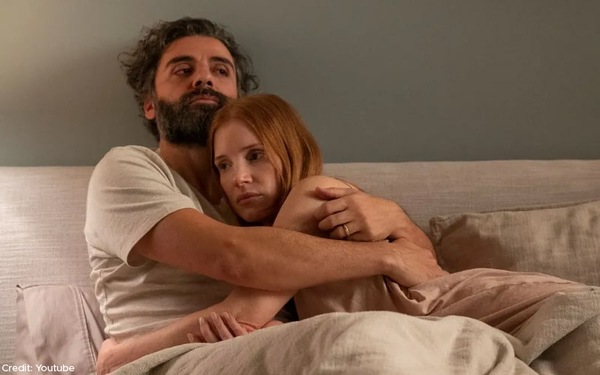Scenes From A Marriage Episode 1 Treads The Line Between Reality And Illusion

Scenes From A Marriage
- Gayle Sequeira
Film Companion
Last Updated: 05.26 PM, Sep 16, 2021
Scenes From A Marriage, an immersive experience of the unraveling of a relationship, begins with a scene that breaks the immersion. As actor Jessica Chastain walks onto set, her assistant asks her what time she’d like to break for lunch and a crew member helps her swap out her wedding ring with that of her character’s. When the director yells ‘action’, Chastain becomes tech mogul Mira, fires off a text in character, and then walks downstairs to the scene staged there. Why go to such lengths to tell viewers that what they’re watching is an act of artifice? When Ingmar Bergman’s six-part miniseries of the same name aired in 1973, it was attributed with a spike in the Swedish divorce rate. Is Hagai Levi, who wrote and directed this remake, now on DisneyPlus Hotstar, trying to avoid the same outcome? Is he suggesting that a successful marriage relies on two people playing their parts? Or, more insidiously, playing a part?
As the episode begins, it becomes clear that even the very beginnings of the relationship between Mira and her husband Jonathan (Oscar Isaac) sprung from play acting. More than a decade earlier, they were roommates, when a doctor treating Jonathan’s asthma mistook them for a married couple. They liked it so much, they decided to keep up the pretense when they returned home. A reality, no matter how stable at present, can’t last if its very foundation is an illusion, is what the episode suggests.
The episode follows the familiar beats of Bergman’s original, but adds a contemporary lens. While Bergman’s protagonists, Marianne (Liv Ullmann) and Johan (Erland Josephson), were being interviewed for a magazine feature on successful marriages, the updated version follows a PhD candidate interviewing Mira and Jonathan for her thesis on whether evolving gender norms affect monogamous marriages. In keeping with the times, she asks them what their pronouns are before beginning her line of questioning. The wife isn’t written as a wallflower in this version — Jonathan describes how Mira was confident enough to approach him back at college, while he, a sheltered, more religious student, thought her out of his league. Where Marianne in the original struggled to describe herself in terms unrelated to her husband, parents or family, Mira has a strong sense of self-worth but her insecurities lie elsewhere. When Jonathan describes how he, an academic, is in charge of childcare because his job affords more flexible hours, a flash of guilt passes over her face. When their young daughter asks for help with an iPad, she leaps at the opportunity though she’s in the middle of answering the interviewer’s questions, a clear overcompensatory tactic.
The theme of play acting recurs when Mira and Jonathan’s friends come over for dinner. Peter (Corey Stoll) and Kate (Nicole Beharie) are chipper on the surface, but concealing a deep unrest within. Their seemingly well-oiled engine of an open marriage has broken down now that Kate’s realised she’s in love with her boyfriend Nathan, who has left her. Peter can’t bring himself to talk about how hurt he is, but lest the viewer feel too much sympathy for him, it’s revealed that he first broached the idea of an open marriage only to justify his cheating. Like Mira and Jonathan, their marriage too is built on an illusion.
Later that night, Mira discovers she’s pregnant, and like Marianne in the original, asks her husband if they should keep the baby. Her fears are rooted in Jonathan having to do the bulk of the childcare. They discuss their options at length, but each one’s opinions reveal little, only engineered to tease out what the other has to say. After all, the stability of their marriage lies in the way they put each other first, even though the buildup of quiet resentment is a potential side effect. They decide to keep the baby and renovate the house so there’s more room.
Whatever changes their mind takes place offscreen but when they decide to have the abortion, the camera tracks the weight of its procedure, rather than just the aftermath. Jonathan’s emotions are given equal weightage — he has to leave the hospital room, clearly not in favour of the abortion but choosing to conceal his feelings so he can be supportive of Mira. She tells him they can still renovate the house, a conciliatory gesture intended to give them something to look forward to, but one that will only become emblematic of the growing space between them.
